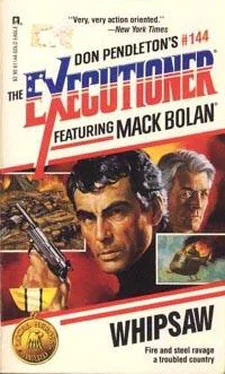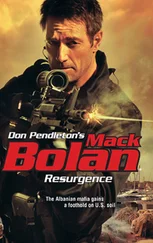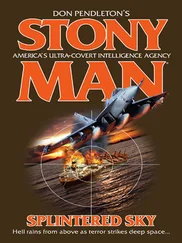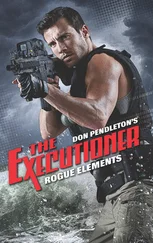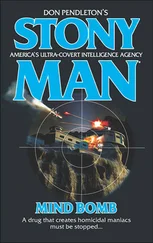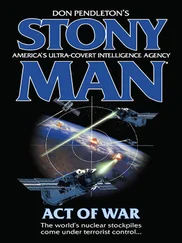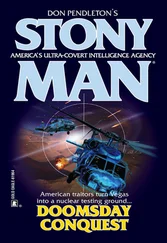And that was what kept him going. Such perfection just didn't exist. No one used three stories of living space without leaving a single sheet of paper out of place, a wrinkle or two on a bedspread, a dirty glass in a sink. It was almost as if someone had scurried ahead of him in the darkness, room by room, with a dust cloth in one hand and a dump sponge in the other. He doubted if a forensic team would be able to pull a single fingerprint.
And that could mean one of only two things. Either the place was supposed to look like that, in which case it was a dummy, some sort of antiseptic front meant to be seen but not used. Or it was used to hide something, and the pristine upper floors were meant simply to discourage the curious, suggesting a wrong turn had been made somewhere back three or four steps. But then the whole operation had been one long wrong turn. Nobody could flit back and forth across the Pacific like some sort of long-distance moth and vanish as completely as Charles Harding had done. Nobody, that is, except a man whose business was not meant to endure sunlight and fresh air.
As the doorknob turned, Bolan held his breath. The tension was almost palpable, and he had to fight against carelessness. How many empty rooms do you have to look in before you expect them all to be that way? Or was that what Harding was counting on?
Bolan groped inside the dark stairwell for a light switch. Neither wall had one. He clicked on his flashlight and played it over the ceiling, looking for a pullchain. The ceiling was flat and empty, and the light showed nothing on either wall.
Bolan found the first step, then clicked off the flashlight as he stepped on through the door.
Feeling his way slowly down the stairs, he kept one hand on the wall to keep his balance in the dark. He nearly stumbled when he reached for another step and found himself already on a flat surface, either a floor or a landing.
One more time he'd have to risk the light. When it lanced out, the darkness seemed to swallow the beam whole. It petered out before finding anything across the floor. He swung it close and played the beam up and down the wall beside him. As it moved away, the perfect circle flattened into an oval, then an open-ended parabola. The wall was completely blank. Cinder blocks, neatly mortared and painted over with a thick, off-white gloss, stretched a good forty feet before the beam played out.
Before moving, Bolan tried to reconstruct his passage down. As near as he could figure, he was looking toward the street in front of the building, but from below street level a good ten or twelve feet, possibly even more. Bolan started along the wall, again clicking off the light and feeling his way with a cautious prodding of one foot then dragging the other up alongside it.
He was starting to feel a damp chill that had nothing to do with climate. About twenty-five feet along the wall, his foot struck something. It sounded hollow, and was probably made of wood. Bolan tried to move around it, but it was too wide for him to maintain contact with the wall. He didn't want to lose the orientation.
The light clicked on again, and seemed dimmer. The light looked pale, almost washed out, and had an orange cast. The batteries were giving out.
Hurriedly he played the beam along the wall and moved around the obstacle, then clicked it off to conserve the power. He made it all the way this time without interruption. His foot struck something solid, then he leaned forward with one hand. Even in the dark he could tell it was a corner. The flat, unyielding thing in front of him was another wall, made of the same cinder block and painted with the same smooth paint.
Bolan flicked the light on one more time. He shone it on the wall in front of him, then started working it toward the left. A metallic click from somewhere off to the left jerked his head around.
Instinctively he shut off the light as he dropped to the cold stone floor.
A small spurt of light flashed, and the slug slammed into the wall just over his crouching body.
He heard the bullet puncture the cinder block and slap like a wet snail against the far side, then rattle down through the hollow blocks for a split second.
A second flash, almost like a powerful firefly, spat at him, and another slug cracked against the brittle blocks above him. Bolan started to roll, trying not to lose his fix on the source of the flame. Using the light was suicide, but he couldn't afford to let the gunman get away.
Bolan stopped rolling as he hit the wooden box he'd had to step around. Getting to his knees, he craned his head forward, turning it slightly to try and get some sense of his surroundings. In the darkness he heard something, a soft whisk like someone sweeping a sidewalk two blocks away.
But the sound was a hell of a lot closer. As he listened, it drew still closer, as if the gunman knew where he was. He pulled the Desert Eagle and waved the gun back and forth, trying to decide where to fire and when. Listening intently, he heard one more rasp of something on stone, then the noise stopped.
Far across the cellar, a wedge of light shone for a second, and someone shouted. The light vanished, and a hollow boom rolled across the dark floor. A door had opened for the briefest instant, then been slammed shut. He'd seen it immediately and felt certain that no one had slipped through. A man would have to be thin as a sheet of paper to manage an entry through that narrow opening.
The shout had come from the gunman, he guessed. But in the renewed darkness, he was no better off than he had been before the door opened. Groping his way past the wooden crate, he kept low and moved as quickly as he could. Something smacked into his right arm, just below the wound, and he groaned involuntarily.
Two quick shots cracked, and he didn't even see any light. Both bullets thudded into the wooden crate, which was just a foot or two behind him.
It had been close, and he knew he was lucky the gunman was content to fire single shots. A spurt of automatic fire would probably find him. The gunman was good. He hadn't missed by much with any of the four shots.
Bolan realised his opponent had some unexplained advantage, and as that fact sank in, the cellar seemed to shrink around him, propelling him even closer to the gunman. The gun barked again, and the report was louder, as if the gunman had drawn closer. Bolan fired twice. One shot pinged off something metal, striking it obliquely then slapping into a solid obstacle far across the chamber. The second seemed to disappear without a trace. No sound of bullet on unyielding wood, stone or metal, no groan from wounded flesh, drifted back to him. It was as if the darkness had swallowed the bullet completely.
Bolan thought about that for a few seconds, and came to the only conclusion possible. Somewhere almost dead ahead of him, the chamber was open. Perhaps the room narrowed into a tunnel, like the one Marisa had taken him through, or maybe an open door let the bullet pass through and find something soft beyond it.
He started to back up, the Desert Eagle in his left hand, his nearly useless right stroking the cold wall. Quickly, he backtracked, stopping only when his butt slammed into the right-angled wall. He knew the stairwell was just to his left, and started inching toward it. As his right hand brushed against the free wall of the stairwell, he groped gingerly with his foot. A misstep might get him killed or, at the very least, alert the gunman to his whereabouts.
As the sole of his boot found the rough stone of the bottom step, all his care was rendered pointless. The cellar flooded with light. He dove straight ahead, just ahead of a hail of gunfire.
As he started up the stairs, he tripped and fell.
It saved his life.
A flurry of shots, this time not from any handgun, punched through the hollow cinder blocks, scattering fragments all over the stairs and raining sharp chips and dust down over his head and shoulders.
Читать дальше
